How the 'White-Label' Business Model Works?
There are many business models, which are applicable to business software, for companies that create products or offer professional services.
Why someone might choose the white label model and what it's all about?
According to Business Model Navigator: "A white label producer allows other companies to distribute its goods under their brands, so that it appears as if they are made by them. The same product or service is often sold by multiple marketers and under different brands. This way, various customer segments can be satisfied with the same product."
How this applies to the technology platforms produced by codbex?
The enterprise companies have urgent needs of an unified technology platform for their application park, which they ask the implementation partners to provide or to suggest one. Such an 'unified technology platform' can reduce the onboarding time of the new services, can ease the integration process between them, can improve the company's TCD and TCO of their applications drastically. In many cases, these partners have a good understanding of the business scenarios they have to implement, but rely entirely on technologies built by others. Building such a platform from scratch is time-consuming and very costly. Realistically, they can be provided either by software giants like Google, Amazon, Microsoft or by companies who are specialized in building exactly such kind of technology platforms. With the big software vendors the problem is that the technologies and the platforms are too generic and provide only basic functionalities. It is still comparatively difficult to start building applications directly at this level and it is not easy to change it in the way you like it. On the other hand, the specialized companies provide opinionated stacks, which lowers the entry barrier for application developers and in the same time increase their productivity. But still, it is not easy to change it to meet the requirements of the given customer. In this context, codbex offers to partners the opportunity to build, for them and their customers, highly specialized platforms based on codbex technologies including 400+ components as well as to combine them with the tousands mature yet well known open source components. Once it is defined what will be included in the given platform, it will be built, tested, and supported by codbex, but will come with the brand chosen by the partner or the end customer.
Who owns the IP in this case?
The partner is responsible for the definition of the platform, what will be included and how will be integrated to serve the scenarios they have in mind. Hence, it is partner's brand and partner's IP.
How it can be deployed?
There are a few options such a platform can be delivered to customers:
codbex owned infrastructure
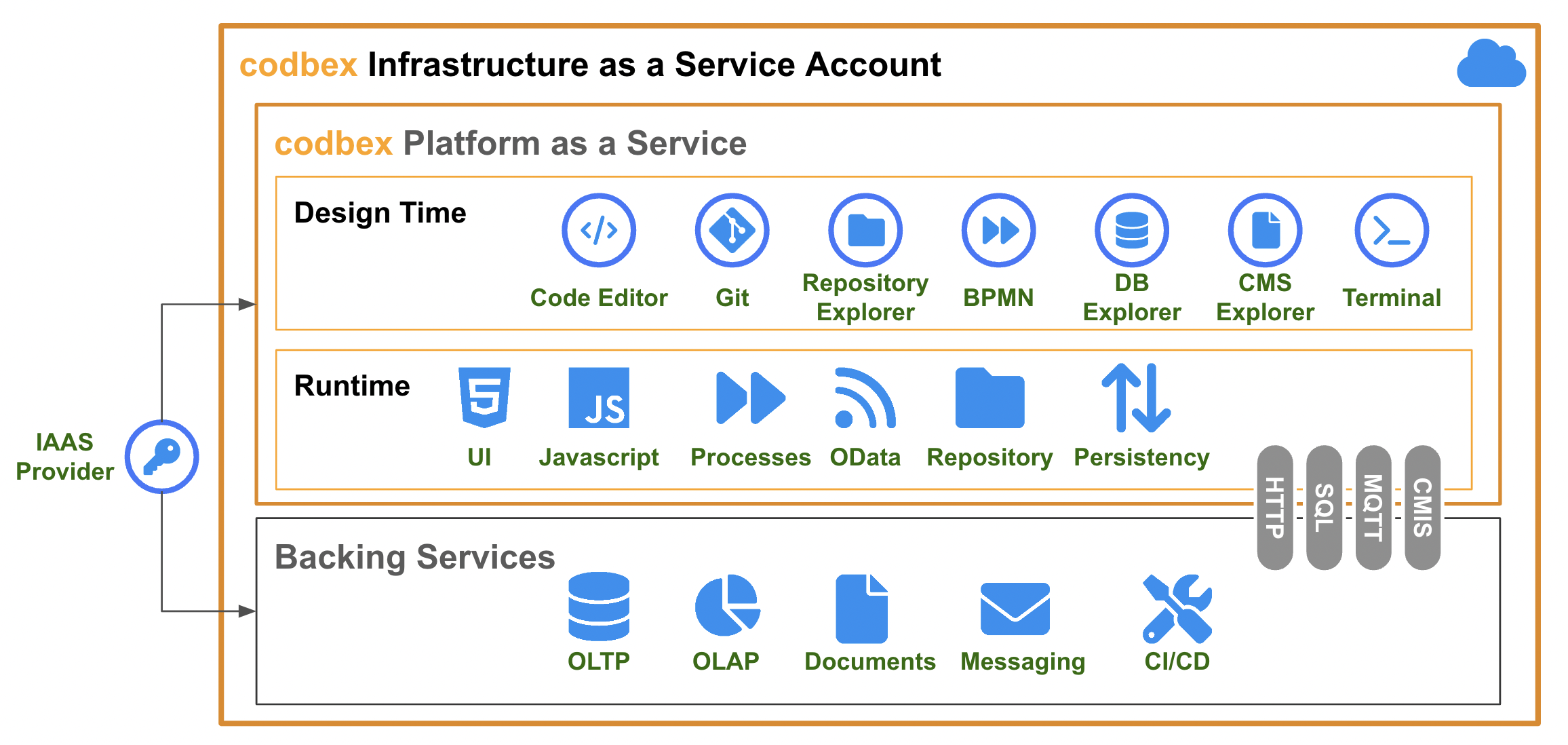
Partner owned infrastructure
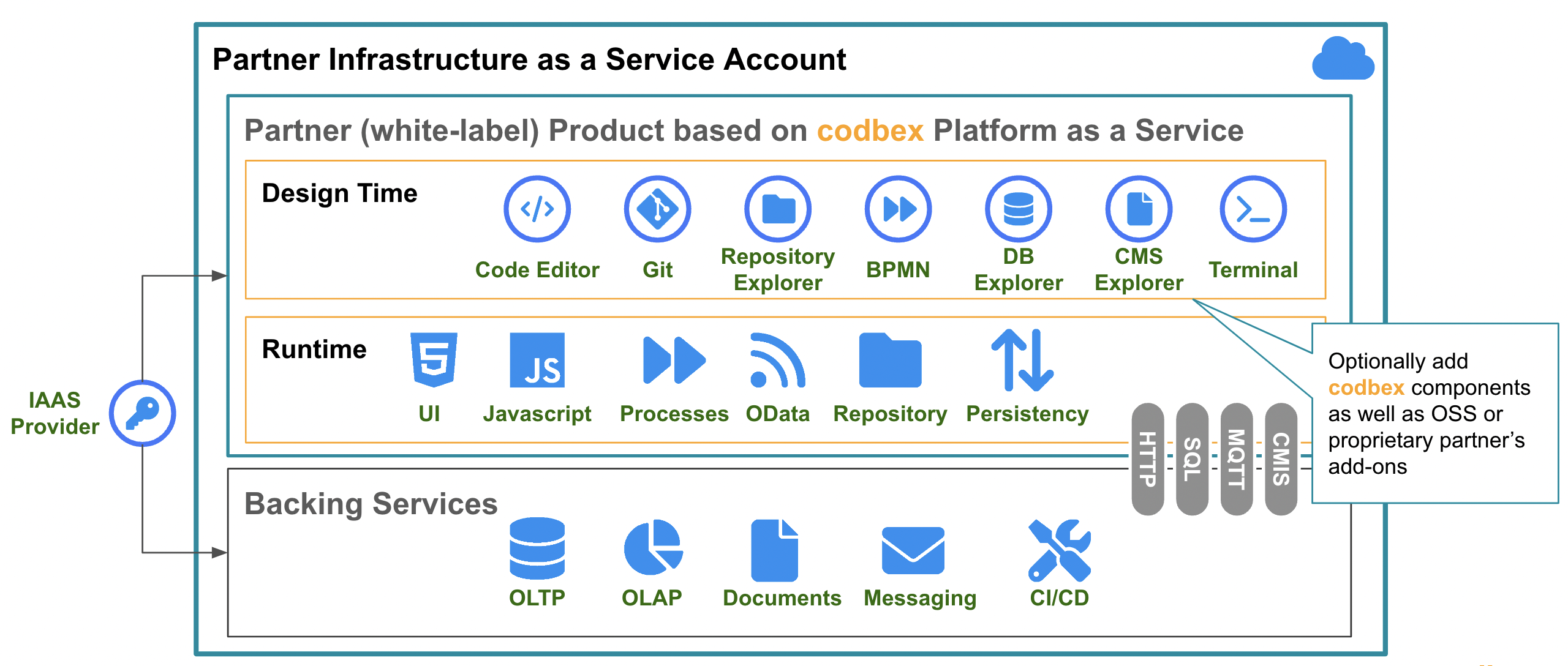
Customer owned infrastructure
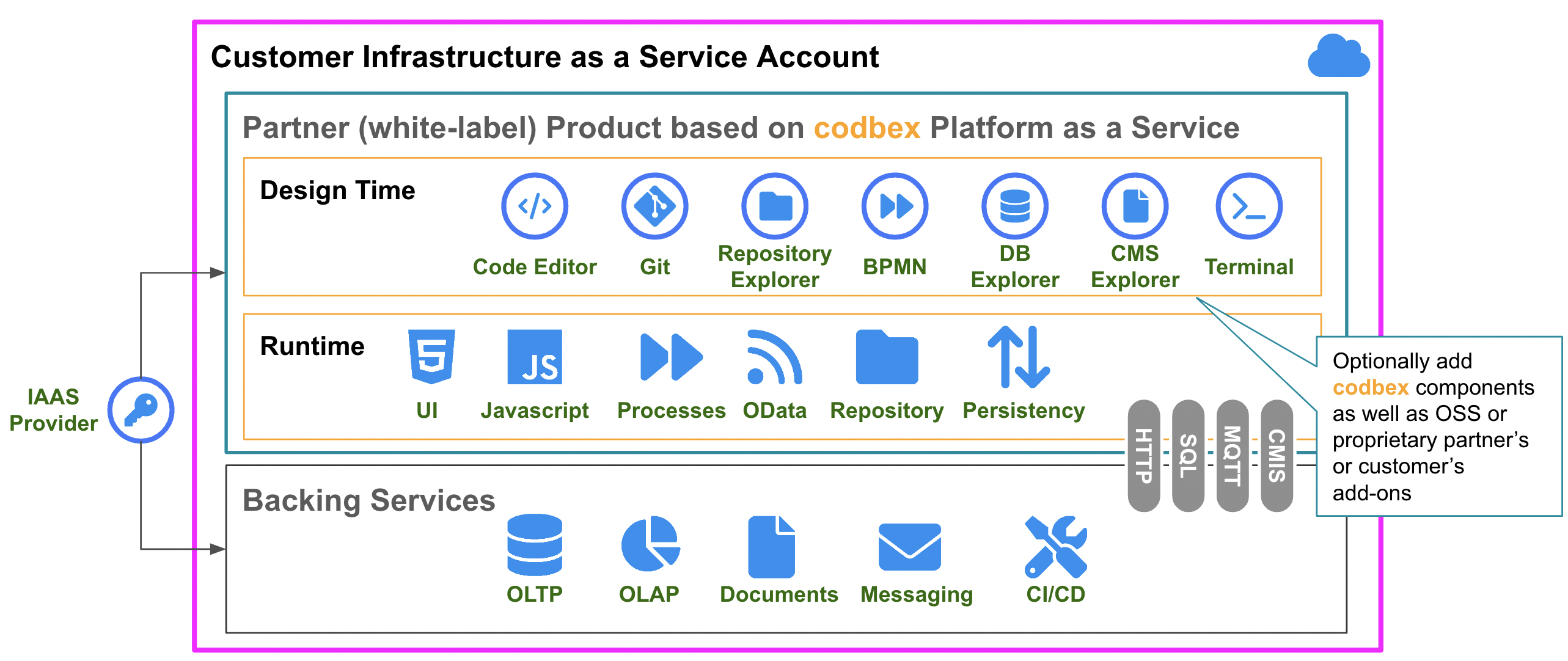
How the support efforts looks like?
There are several layers of engagement available, which determines the support levels:
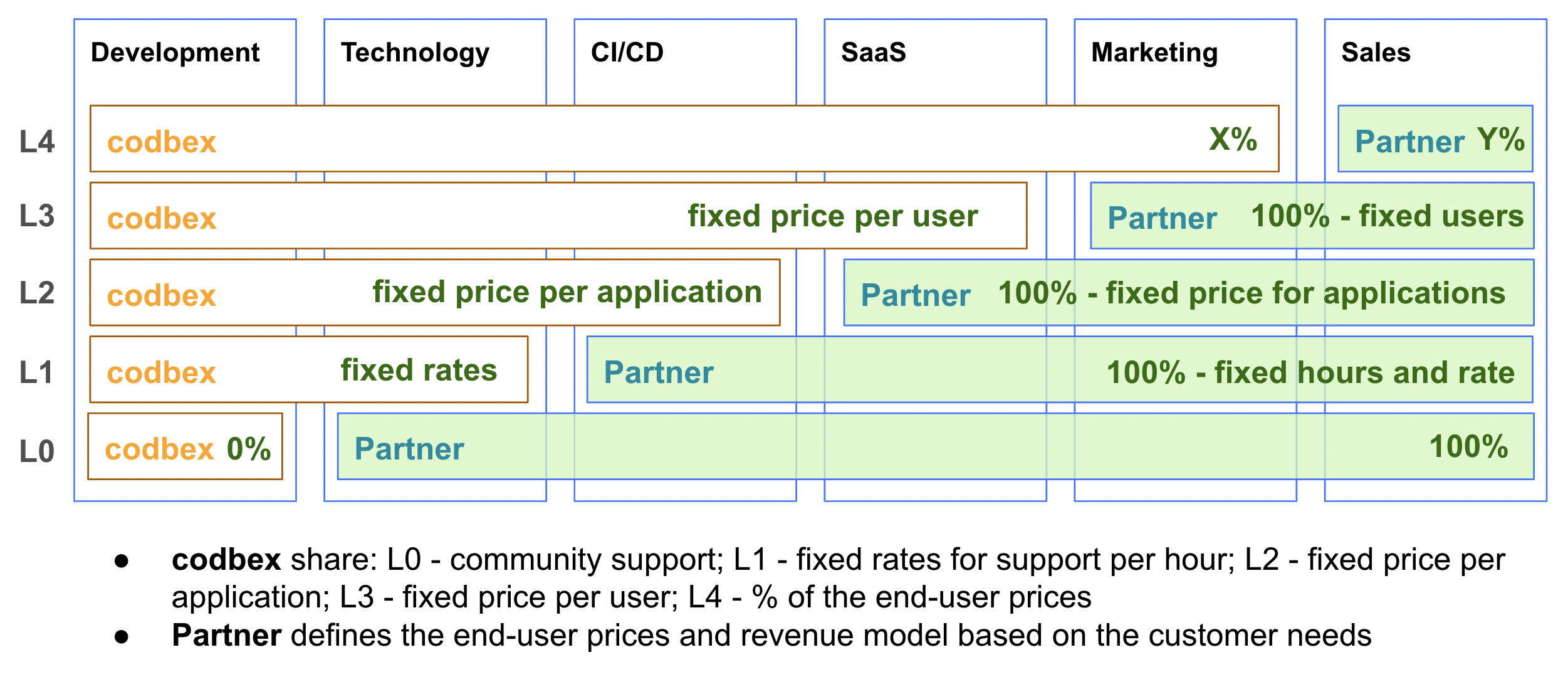
For easy estimation of the support cost, we provide a T-shirt size levels:
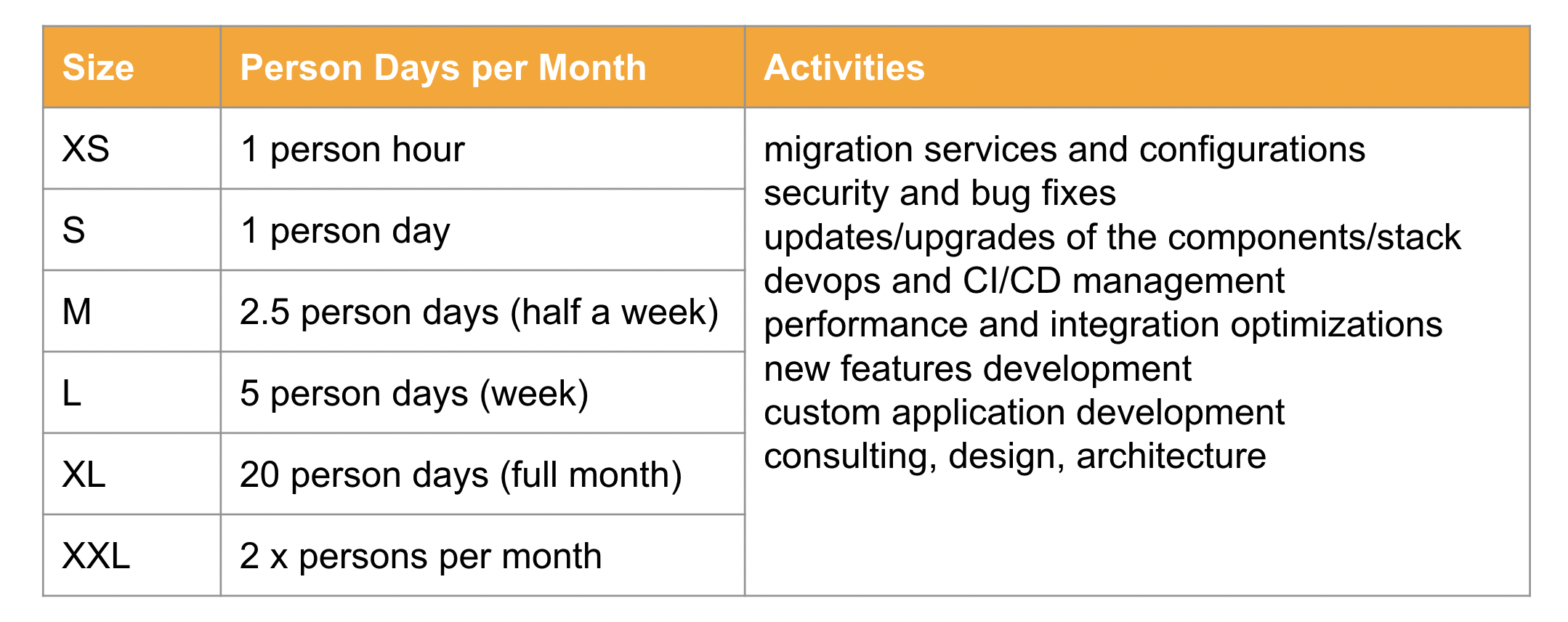
It sounds interesting?
You can always contacts us with your ideas and requirements.